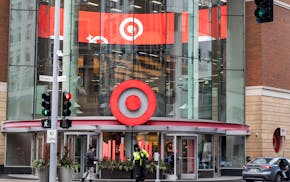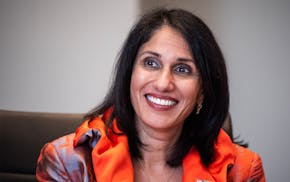Presidential candidates Donald Trump and Kamala Harris tell very different stories about the American economy.
Old, tired stories actually, stories that were more true in the past than now.
Listening to them is like being at a baseball game and watching the left fielder after the ball was hit to right. Only too late do you realize that's not where the action is.
Harris and Trump are doing what presidential candidates always do by offering sugar for the pocketbook: tax breaks or incentives that are nice in the short run for their recipients but costly to the nation in the long run.
Neither one is talking about the nation's ultra-low population growth and its effects on the economy.
Growth never happens equally. The industrial Midwest grew faster than the South for a century after the Civil War. In the last half-century, the South and West far outgrew the Midwest and Northeast.
A rising tide lifts all boats, though, and America's tide rose so fast for so long it helped smooth over regional differences. Today, the tide is barely rising and the areas that are being left behind, including Minnesota, face a painful future.
It's simple math that the rate of population growth would slow as the country got larger. Now, we've reached the stage of that slowing where the differences between growth and decline amplify other causes of division.
The national media, based in metropolitan areas still growing, don't notice the country's slowing population growth and its effects. In an exception, the New York Times last week published a well-executed feature about how uneven the post-pandemic workforce recovery has been, with a county-by-county breakdown of job gains and losses.
It took three years after the 2020 census for the U.S. to grow 1%, or 3.3 million people. Unless the pace picks up, the U.S. will be lucky to reach 4% growth in the 2020s. That's quite a comedown for a country that grew 13% in the 1990s and more than 7% in the 2010s.
Minnesota is growing more slowly than that. Over that same period from 2020 to 2023, Minnesota's population grew 0.5%. All across America, rural areas are losing population.
Ignoring this slowdown, Trump and running mate JD Vance tell an old story that America is under attack from immigrants leaving other countries for the U.S.
They attribute many economic problems to immigrants and other foreign forces. They say the U.S. has lost factories to other countries, that Americans have lost jobs to immigrants and that the nation's housing shortage is because so many immigrants came here over the past three years.
Meanwhile, the old story from Harris and running mate Tim Walz, Minnesota's governor, is that America is under attack from its largest companies and the financial firms that support them.
The concentration of industries ranging from meatpacking to e-commerce by a relative handful of companies has led to higher prices and limited opportunities for American workers, they say.
Harris' story diminishes other causes of inflation, including the government's role. However, there's no equivalence between her old story and his.
Trump's economic story and remedies are more harmful to the nation's future.
With his deportation plan, he would actually shrink the U.S. workforce, which would lead to recession and reignite inflation as employers pushed higher costs of labor onto the prices of goods and services.
All to fight a problem that has been diminishing. Because even as the number of immigrants entering and working in the U.S. illegally soared in 2021 and 2022, so did the number of native-born Americans with jobs. The native-born American employment figure hit a record high in the summer of 2023 and is down marginally since then, chiefly due to retiring baby boomers.
Meanwhile, the whole fury about immigrants overlooks the nation's overall population is growing at a historically low rate.
Unfortunately, sizable numbers of people on both the left and the right think population slowdown, or even decline, is fine.
On the right, it's people angry that most population growth in America is people of color rather than white people. The most extreme decry the "replacement" of whites.
On the left, it's people who think that population growth is killing the planet. The most extreme advocate for "degrowth" policies.
I suspect what unites these critics is comfort about their own wealth and futures. However, poor and young Americans need the nation's population and economic growth to be robust so they will have a chance for better.
The campaigns talk about the economy the way they do — selling fear about foreigners in Trump's case and selling outrage about big business in Harris' — because extreme emotions might carry into the voting booth.
How great it would be if someone trying to lead the U.S. talked about what the economy is really up against.

Ramstad: Minneapolis' Camden neighborhood is rising. Houston White wants to keep it that way.

Ramstad: Minnesota's big businesses are in crisis with a common problem

Ramstad: No business can 'eat' all the tariffs, not even Walmart

Ramstad: Donaldson is protected from tariff chaos after expanding globally the right way

